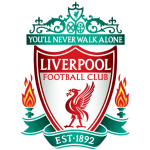
One of the more stark developments in modern football is the essentiality of the defensive midfielder.
The role has undoubtedly been important throughout football history. The position would typically employ what has come to be known as a 'destroyer', someone tenacious in their tackling and able to break up an opposition's attack with ease, who could advance the ball to a 'deep-lying playmaker' who builds attacks from the position with their passing ability.
Article continues under the video
Players who could do both were rare and have entered the pantheon of football history - Frank Rijkaard, Patrick Vieira, Clarence Seedorf. Without players with this exceptional ability teams would have to deploy two players who filled the role separately - think Gattuso winning the ball for Pirlo, Makelele winning it for Zidane, Keane winning it for Scholes.
The defensive midfielder in modern football The modern development of making the player who could combine the two essentials came, as it annoyingly always does in modern football, with Pep Guardiola. His deployment of Sergio Busquets in the role for Barcelona who not only funnelled the ball to Xavi and Iniesta with alarming ease but also could hit Messi and co. directly was central to why his team was unplayable.
And Guardiola has this right now with Rodri who, beyond just the position, has a legitimate case to be the best player in the world right now.
Liverpool tried to find their own future of this position in the summer with attempts to sign Martin Zubimendi. Alexis Mac Allister played the deeper role mainly last season but lacked the skillset to fully succeed in it. After years of Fabinho, who played more of a destroyer role excellently and led Liverpool to a league and Champions League playing there, it was clear new head coach Arne Slot would need to get the position right if he wanted to enjoy success.
Step into centre stage, Ryan Gravenberch.
After having a lacklustre first season on Merseyside, Slot has brought Gravenberch to the centre of his team and the centre of his success.
After Rodri's unfortunate ACL injury sustained in the game against Arsenal last month, Gravenberch's level of play means he legitimately has claims to be the best defensive midfielder in the world right now.
What do the stats say? To back up these claims we have compared Gravenberch to four of the other accepted top-level DM's in the world on football statistics compiler FBRef - Declan Rice, Aurelien Tchouameni, Joshua Kimmich, and his proposed replacement Zubimendi.
What becomes evident is that this season, Gravenberch is simply playing at an all-around level that the others cannot touch.
Defensively, Tchouameni is the only player that beats Gravenberch for interceptions at 2.47 per-90 to Gravenberch's 1.71. Yet, Tchouameni's tackles pales in comparison, with Gravenberch racking up 1.14 per-90 to the Real Madrid star's 0.78. This gets starker when you consider Gravenberch's tackle rate is 66.7% and Tchouameni's 42.9%.
Only Zubimendi beats Gravenberch in tackle rate (71.4%) yet he only averages 0.59 tackles per-90 compared to the aforementioned 1.14 by Gravenberch - a number that none of the other players reach.
And this is clearly evident when watching the games too - part of the reason Manchester United couldn't live with Liverpool was the intensity in tackling that Gravenberch brought when Liverpool initiated a press high up the pitch.
Having the second-highest interception rate and a tackling ability head-and-shoulders above the rest it is unquestionable that Gravenberch's defensive capabilities outrank any of the other men on this list.
This Gravenberch shoulder drop (body manupilation) move isn't just plain as many think it is.
It has groundwork, there is awareness, there is great scanning done before every turn, there is great control, and importantly game reading for anticipation. pic.twitter.com/KspqttfJux
- Fab (@redfxb) October 8, 2024 How does Gravenberch measure up in attack? The other aspect of the position, then, is the ability to progress the ball into attack. Gravenberch's progressive passes per 90 are outranked by Tchouameni, Kimmich and Zubimendi. Yet he outranks them in progressive carries per 90, at a rate of 2.71, with Zubimendi coming closest at 2.12.
This suggests that Gravenberch prefers to do his progression by dribbling and, again, this becomes evident in watching him. One of the key skills that has made him the arguably best in the world is his off-the-ball turn, using his body to shield the ball against the opponent pressing him and then carrying the ball into the space that has been vacated ahead of him.
It is an essential part of Liverpool's build up and means that, instead of playing the ball into a marked midfielder or winger ahead of him, Liverpool are often in attacking transitions that they can exploit.
Only Rice has more progressive carries per 90 than Gravenberch here, and he is the sole figure with fewer progressive passes. This, again, points to Gravenberch being the only man on the list who maximises his all-around progression at the position. Rice is an extreme - most of one and few of the other - whereas Gravenberch attempts tp nail both.
In any discussion of elite-level play in football, what is so often lacking is what the purpose of a role is. The best defensive midfielders of all time have been those who can contribute to both the defending and attacking phases for their team.
So whilst Joshua Kimmich, for example, may have over 3 more shot-creating actions than Gravenberch per 90, his defensive contributions are barely comparable.
Without Gravenberch, Liverpool are a different proposition this season. They are a worse proposition. And for that, there is not a single active player in the world that can touch him.


